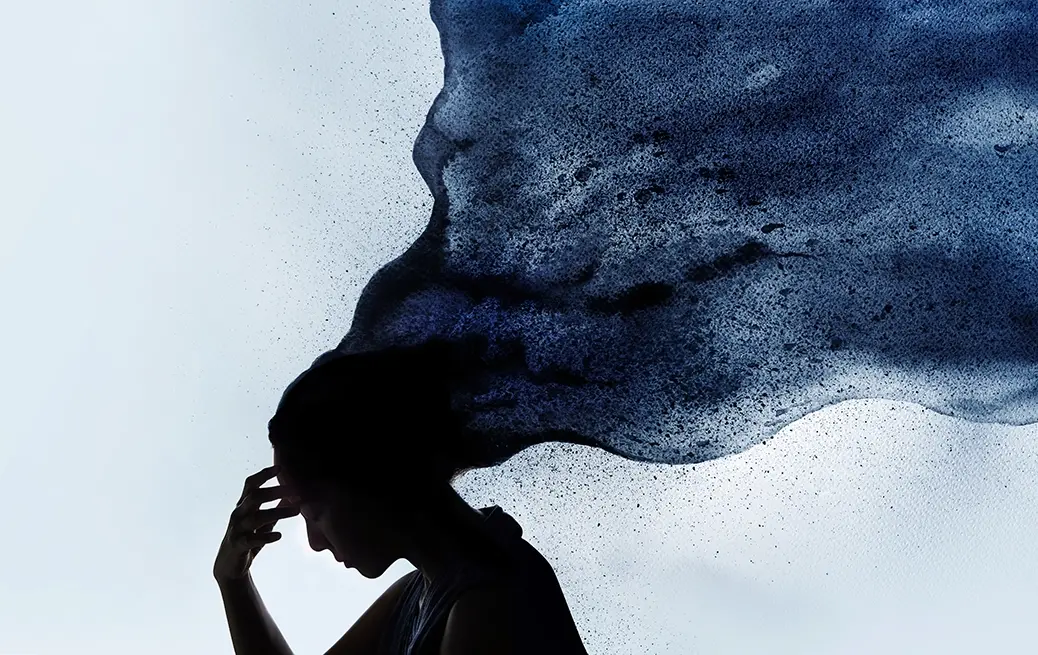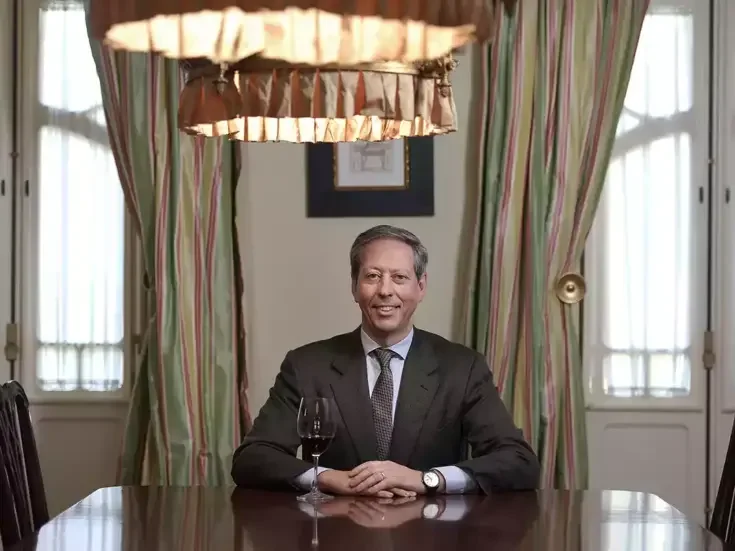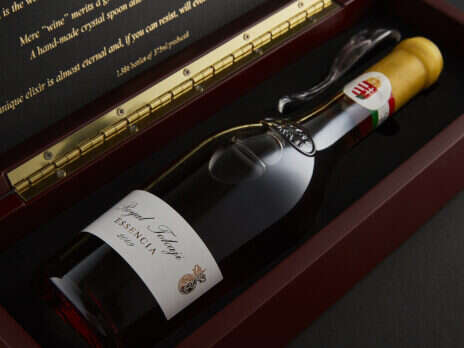
Nowadays, it is scarcely possible to open a newspaper without seeing a reference to the ‘stress’ of modern times,” G Stewart MD wrote in The Lancet 73 years ago.1 “The trials of life have usually appeared exceptional to the generation called on to bear them.” Dr Stewart discussed the arguments pro and con a causal association between stress and coronary disease and concluded that “it is reasonable to identify sufferers from coronary disease as the selected victims of modern stress. Little more can be said at present. Nothing is proved.”
George Bernard Shaw had observed that “alcohol is the anesthesia by which we endure the operation of life,” and for centuries, people have used alcohol to relieve stress. The intriguing results from recent research may have carried the burden of proof that the mind controls the fate of the heart, though drinking wine as a way to cope with distress was suggested by the Greek poet Alcaeus more than 2,500 years ago: “We must not let our spirits give way to grief […]. Best of all defenses is to mix plenty of wine, and drink it.”
Fight-or-flight reactions
The caveman’s response to physical threat to his life was either to run or to fight. His cardiovascular system was designed to suddenly increase the heart rate, to pump more blood and to raise blood pressure, thereby increasing blood flow to the skeletal muscles. By running or fighting, the sustained effects of emotional stress on the cardiovascular system were promptly dissipated. Our Stone Age brains are still wired for fight-or-flight reactions to stressful situations, but our modern surroundings no longer match those conditions. There is a socially enforced “uncoupling” between the brain, heart, and skeletal muscles, and psychological stress might now trigger adverse heart events through biological mechanisms such as increased heart rate, high blood pressure, secretion of adrenaline (the fight-or-flight hormone) and cortisol (your body’s stress hormone) and activation of inflammatory systems. Risk of admission for acute myocardial infarction increased by 25 percent on June 30, 1998 (the day England lost a World Cup soccer match to Argentina in a penalty shoot-out), and the following two days. No excess admissions occurred for other diagnoses or on the days of the other England matches.2 The increase in admissions suggests that myocardial infarction can be triggered by emotional upset.
Response to stress varies greatly among individuals and whether cardiac disease is precipitated by emotional stress depends on the relative resistance of individuals. In Arthur Conan Doyle’s The Hound of the Baskervilles, Charles Baskerville has a fatal heart attack, resulting from extreme psychological stress. Phillips et al confirmed the association between increased cardiac mortality and psychologically stressful occasions by identifying a cultural phenomenon with unpleasant associations for one group (Chinese and Japanese) and neutral associations for another (white Americans and Europeans). In Mandarin, Cantonese, and Japanese, the words “death” and “four” are pronounced almost identically, and the number 4 evokes discomfort and apprehension in many Chinese and Japanese people. An analysis of death certificates between the beginning of January 1973 and the end of December 1998 found excess cardiac mortality in Chinese and Japanese people on the fourth of the month, with no similar peak among white controls.3
Stress and myocardial ischemia
Analyses based on 18 years of follow-up of 7,268 men and women from the British Whitehall II cohort study found that participants who reported at baseline that stress has affected their health “a lot or extremely” had double the risk of coronary death or nonfatal myocardial infarction when compared with those who reported no effect of stress on their health.4
Myocardial ischemia occurs when blood flow to your heart is reduced, preventing the heart muscle from receiving enough oxygen, which may lead to a heart attack or cause serious abnormal heart rhythms. In a recent study of 918 patients with stable coronary heart disease, 16 percent of participants developed myocardial ischemia from a mental stress test: a public speech task.5 Compared with those who did not develop ischemia, they had a twofold increased risk of subsequent adverse cardiac events. Brain-imaging studies have linked mental stress-induced ischemia to alterations in brain reactivity to stress in areas involved in the regulation of emotions and autonomic function.
Does drinking reduce stress?
Vaccarino et al suggested medical and lifestyle interventions like exercise, stress management training (for example, meditation), beta blockers, and antianginal drugs as treatment for patients with coronary heart disease and mental stress-induced myocardial ischemia. The question is whether regular, moderate intake of wine might also be beneficial. Studies of the relationship between alcohol and stress suggest that drinking can reduce stress in certain people and under certain circumstances. For example, drinking in a stressful situation (such as after a bad day at work) in the presence of a concurrent pleasant distraction (at a party with friends, say) leads to a stress-response dampening (SRD) response, because the drinker perceives only the pleasantly distracting aspect of the situation and cannot focus on the stressor. Conversely, drinking without a concurrent neutral or pleasantly distracting activity (for example, alone in a bar) does not produce any SRD effect and may even increase stress.6
A large number of population studies (such as the British Whitehall studies of civil servants working in the London offices of 20 Whitehall departments) have found an association between light to moderate alcohol consumption and lower risk of adverse cardiac events and also several biological mechanisms: increase of protective high-density lipoprotein, improved coronary blood flow, and antioxidant effects. A recent study of 53,064 participants enrolled in the Mass General Brigham Biobank found an association between light to moderate intake of alcohol (1–14 drinks per week) and a 22 percent lower risk of major adverse cardiovascular events. A subset of 713 participants underwent brain imaging, and the epoch-making conclusion of the authors is that light/moderate alcohol consumption associates with reduced risk of adverse cardiovascular events, in part by lowering activity of a stress-related brain network known for its association with cardiovascular disease. As an extension of this finding, the authors observed that the beneficial impact of light/moderate alcohol intake on cardiovascular disease among the participants was nearly twice as great among individuals with (versus without) anxiety.7
Chambertin for a brighter future
The response of the brain to psychosocial stress is a highly sophisticated and integrated process by which sensory inputs are evaluated and appraised for their importance in relation to previous experience and current goals. Drinking may differentially affect the processing of positive and negative information, with negative information becoming less accessible than positive information. A Swedish neuroscientist and the pioneer of cerebral blood-flow studies in man, Professor David H Ingvar also studied the concept of “memory of the future.”8 And at the DWV-Kongress in Stuttgart in 1992, he gave a presentation relating to wine consumption, “The Influence of Wine upon the Brain”: “Conscious awareness implies an overview of one’s ‘lifetime’—i.e., one’s past, present, and future. Experience of events in the present which one hears or sees when one is conscious, are compared with memories of past events stored in the brain. Also actual experiences in the present have influence on ideas, visions, and expectations which one has about the future. A very important effect of even smaller doses of alcohol, of the magnitude in two glasses of wine, appears to be that problems pertaining to the past are less burdened by feelings of guilt. Also the inner image of one’s future becomes brighter and less marked by anxiety. Hence, due to the effects on conscious awareness, a few glasses of wine makes one feel slightly elated and in a more pleasant mood.”
In The Three Musketeers, Alexandre Dumas depicts the reactions of the three friends to a stressful situation as they are waiting for important news. “This anxiety became so great that it even extended to Aramis and Porthos. Athos alone remained unmoved, as if no danger hovered over him, and as if he breathed his customary atmosphere […]: ‘Eh, gentlemen, let us reckon upon accidents! Life is a chaplet of little miseries which the philosopher counts with a smile. Be philosophers, as I am, gentlemen; sit down at the table and let us drink. Nothing makes the future look so bright as surveying it through a glass of Chambertin.’”
A double-edged sword
People who experience stressful life events with high levels of negative emotions might turn to alcohol to try to dampen the intense psychological discomfort. The use of alcohol to reduce stress is a double-edged sword, however: While regular use of small amounts for enjoyment with family and friends (pleasure-drinking) is associated with beneficial effects, drinking to drown one’s sorrows (sorrow-drinking) may lead to heavy drinking and the risk of harmful effects.9
Lionel Tiger, Charles Darwin professor of anthropology at Rutgers University and author of The Pursuit of Pleasure, was asked for a definition of ‘‘the moderate use of alcohol”. He replied that it was when alcohol was employed to have more fun with one’s friends and family. If it is used to mask or deny serious personal and social issues, however, then alcohol consumption is not ‘‘moderate,’’ regardless of the amounts used. As a factor in dining, celebrating, ritualizing, easing the day’s end, alcohol is widely used—and given these conditions, moderate long-term use of alcohol is, in fact, desirable, even preferable, especially in the later years of the life cycle.10
NOTES
1. G Stewart, “Coronary Disease and Modern Stress,” The Lancet 2 (1950), pp.867–70.
2. D Carroll et al, “Admissions for Myocardial Infarction and World Cup Football: Database Survey,” British Medical Journal 325 (2002), p.1439.
3. DP Phillips et al, “The Hound of the Baskervilles Effect: Natural Experiment on the Influence of Psychological Stress on Timing of Death,” British Medical Journal 323 (2001), pp.1443–46.
4. H Nabi et al, “Increased Risk of Coronary Heart Disease Among Individuals Reporting Adverse Impact of Stress on Their Health: The Whitehall II Prospective Cohort Study,” European Heart Journal 34 (2013), pp.2697–2705.
5. V Vaccarino et al, “Association of Mental Stress-Induced Myocardial Ischemia with Cardiovascular Events in Patients with Coronary Heart Disease,” Journal of the American Medical Association 326 (2021), pp.1818–28.
6. CM Steele et al, “Drinking Your Troubles Away II: An Attention-Allocation Model of Alcohol’s Effect on Psychological Stress,” Journal of Abnormal Psychology 97 (1988), pp.196–205.
7. K Mezue et al, “Reduced Stress-Related Neural Network Activity Mediates the Effect of Alcohol on Cardiovascular Risk,” Journal of the American College of Cardiology 81 (2023), pp.2315–25.
8. DH Ingvar, “Memory of the Future: An Essay on the Temporal Organization of Conscious Awareness,” Human Neurobiology 4(3) (1985), pp.127–36.
9. R Grossarth-Maticek et al, “Personality, Stress, and Motivational Factors in Drinking as Determinants of Risk for Cancer and Coronary Heart Disease,” Psychological Reports 69 (1991), pp.1027–43.
10. L Tiger, “Alcohol and Pleasure,” Annals of Epidemiology 17 (2007), S112–S113.






